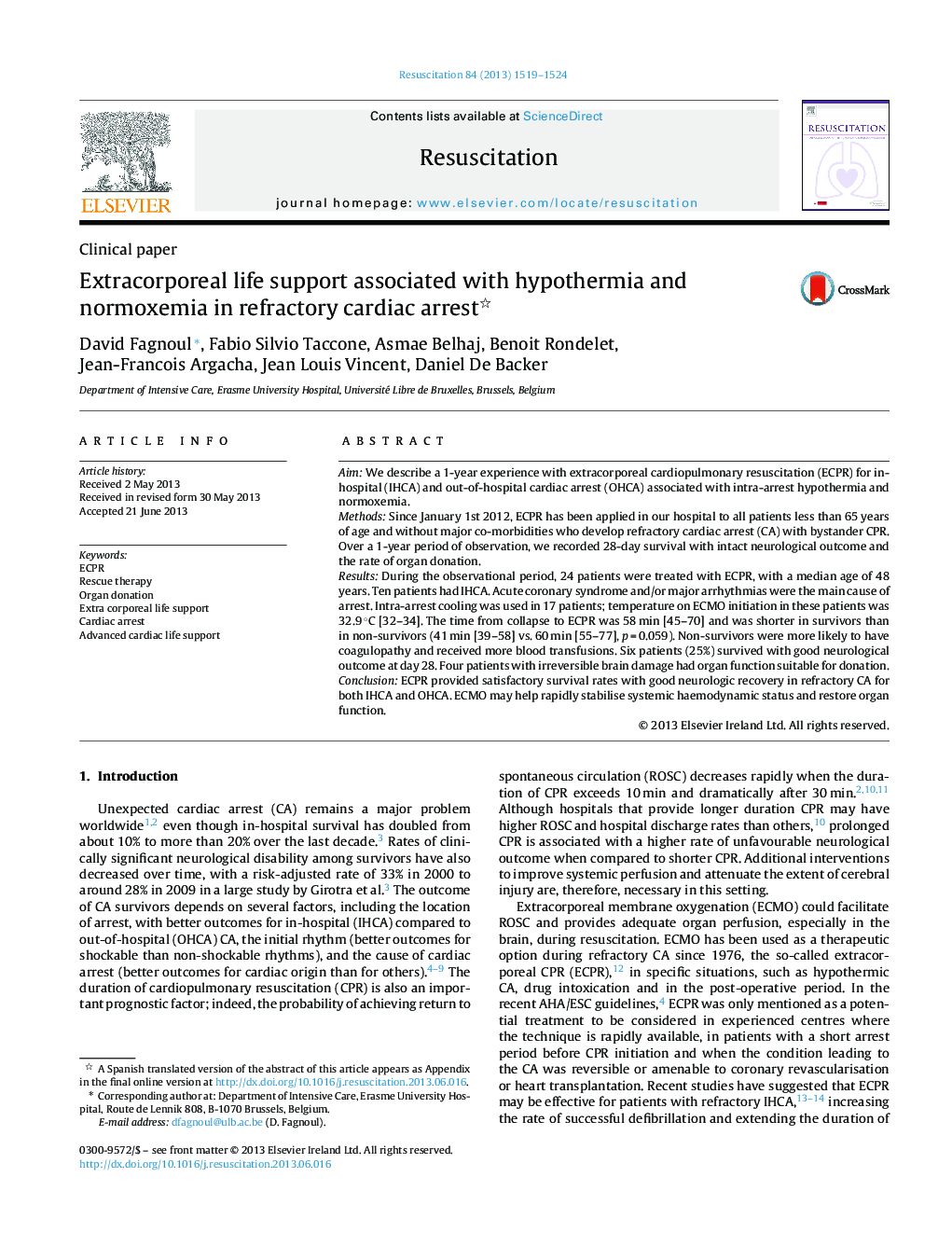| Article ID | Journal | Published Year | Pages | File Type |
|---|---|---|---|---|
| 5998966 | Resuscitation | 2013 | 6 Pages |
AimWe describe a 1-year experience with extracorporeal cardiopulmonary resuscitation (ECPR) for in-hospital (IHCA) and out-of-hospital cardiac arrest (OHCA) associated with intra-arrest hypothermia and normoxemia.MethodsSince January 1st 2012, ECPR has been applied in our hospital to all patients less than 65 years of age and without major co-morbidities who develop refractory cardiac arrest (CA) with bystander CPR. Over a 1-year period of observation, we recorded 28-day survival with intact neurological outcome and the rate of organ donation.ResultsDuring the observational period, 24 patients were treated with ECPR, with a median age of 48 years. Ten patients had IHCA. Acute coronary syndrome and/or major arrhythmias were the main cause of arrest. Intra-arrest cooling was used in 17 patients; temperature on ECMO initiation in these patients was 32.9 °C [32-34]. The time from collapse to ECPR was 58 min [45-70] and was shorter in survivors than in non-survivors (41 min [39-58] vs. 60 min [55-77], p = 0.059). Non-survivors were more likely to have coagulopathy and received more blood transfusions. Six patients (25%) survived with good neurological outcome at day 28. Four patients with irreversible brain damage had organ function suitable for donation.ConclusionECPR provided satisfactory survival rates with good neurologic recovery in refractory CA for both IHCA and OHCA. ECMO may help rapidly stabilise systemic haemodynamic status and restore organ function.
